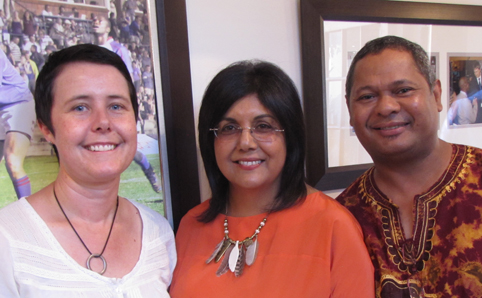Latest News Archive
Please select Category, Year, and then Month to display items
![]()
The closing date for the submission of nominations for five members of the Convocation to the Excom of the Convocation was 18 May 2020 at 16:30. A total of six nominations were received and scrutinised, after which two nominations were declared invalid due to substantial non-conformance with the requirements laid down. The remaining four candidates are thus elected to the Excom and will serve for a period not exceeding five years.
We wish to congratulate the following four officials (in alphabetical order) with their election to the Excom of the Convocation:
1. Dr Pieter Bettings
2. Ms Ntombi Nhlapo
3. Mr Ntakuseni Razwiedani
4. Ms Nokuthula Sithole
A meeting of the Excom of the Convocation will be scheduled to discuss the one remaining vacancy in the Excom.
We wish to express our sincere gratitude to all those who participated in this process as well for their interest in, and commitment to the University and its affairs.
Received from: The Registrar and the President of the Convocation
‘We need a story that will excite us all’
2012-03-09
 |
|
Attending the conversation were, from the left: Willemien Marais, Lecturer in the Department of Communication Science; Zubeida Jaffer; and Prof. Andre Keet, Director of the International Institute for Studies in Race, Reconciliation and Social Justice.
Photo: Amanda Tongha
9 March 2012
|
“From the stories of Afrikaner Nationalism and Black Consciousness to the stories of our Constitution and the 1995 Rugby World Cup… But now what do we have?”
This was the question posed by Zubeida Jaffer, recently appointed as the university's Writer-in-Residence. Do we need a new national narrative? was the issue addressed by Ms Jaffer in a talk presented as part of the Critical Conversations series hosted by the university’s International Institute for Studies in Race, Reconciliation and Social Justice. Ms Jaffer is an award-winning journalist and author of, amongst others, Love in a time of treason and Our Generation.
“We can’t change the past and we can’t keep on focusing on separate narratives; we need to find a story, a new national narrative with elements that could excite all of us,” she told an audience consisting of academics and students. She also referred to the changes that took place at the university. “I’m fascinated by what is happening here. It’s mind-boggling to see the changes.” Based on the UFS’ drive to find common ground, Ms Jaffer told the audience that research at universities could and should direct this search for a common South African story.
In reference to her own experiences as a community activist and journalist during apartheid, she urged students to become active citizens. “In my time students were the leaders; they gave direction to the national debate.”
Article (pdf format)